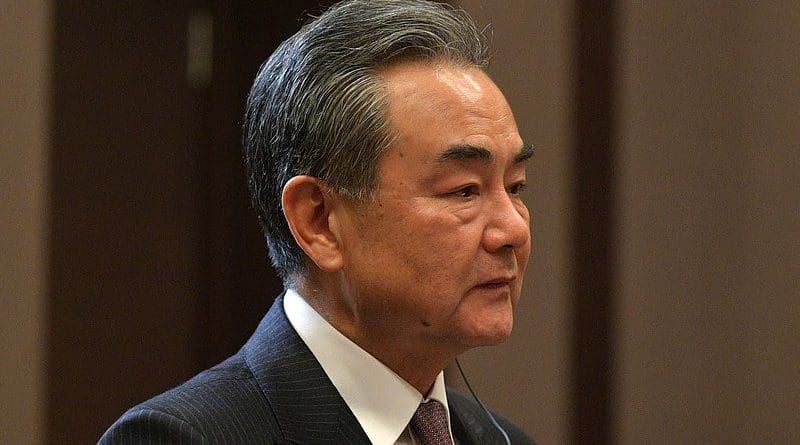A Closer Look At Recent US-China Diplomatic Engagement – OpEd
In a recent turn of events, the United States has formally invited the newly appointed Foreign Minister of China, Wang Yi, to Washington. Previously, a number of high-level meetings between the US and Chinese officials have taken place in the past few months. Washington’s recent efforts for diplomatic engagement with China is aimed at maintaining open channels of communications and reducing the risk of miscalculation considering the growing competition between the two countries. However, many scholars believe that the US-China diplomatic engagement might not have any productive outcome in near future considering the divergence on number of issues.
In June 2023, the US Secretary of State first extended the formal invite to then Chinese Foreign Minister, Qin Gang, who has been replaced by Wang Yi due to health reasons. However, Washington has now invited Director of the Central Commission for Foreign Affairs and Foreign Minister, Wang Yi, to visit Washington during a meeting between the US Assistant Secretary Daniel Kritenbrink and Yang Tao, Director General of the Department of North American and Oceanian Affairs at Foreign Ministry of China.
It is pertinent to note that the US secretary of state Antony Blinken visited China in June this year where he met a number of senior Chinese officials including President Xi Jinping and then Foreign Minister Qin Gang. This was the first visit by American top diplomat since 2018. Additionally, the US Treasury Secretary Janet L. Yellen visited China last month and had meaningful meetings with Chinese officials including Chinese premier, Li Qiang, and Vice Premier He Lifeng. Also, some other high level visits to China are expected by the US officials in the coming months.
This recent engagement between the US and China is taking place when the relationship between both countries are at lowest since establishment of formal relations. The tensions between China and the US started to flare during the early months of the Trump’s administration and since then the US has made limited efforts to ease the growing tensions. Number of flare-ups, including the allegations of a Chinese high-altitude spy balloon over the US territory and alleged cyber-attacks attributed to Chinese hackers, played a role in further deterioration of the already delicate relationship.
While the invitation to Foreign Minister Wang Yi is an encouraging step towards dialogue, the success of these efforts remains uncertain. The US and China have stark differences on multiple issues, from trade to geopolitics, and technology. Navigating these contentious issues will require significant willingness to compromise. For China the engagement with the US will be meaningful if Washington is willing to seriously consider converging on the issues like Taiwan and trade war. Otherwise, the only point of convergence left will be climate. Presently, maintaining open channels of communication to avoid miscalculation is the primary objective of this engagement as highlighted by the US.
China believes that maintaining an open line of communication will enable the US provocative behavior in the Western Pacific. Considering this, China might not actively engage in dialogue with Washington with hopes to make the US more cautious about crossing Beijing’s red lines. This suggests that the underlying goal for China, despite any temporary engagements or dialogues, is to limit the US military activities in areas concerning China.
Keeping this in view, it can be argued that this recent diplomatic engagement between Washington and Beijing might not have any productive outcome in near future. In order to have productive results out of this engagement, both countries would have to identify the key areas of cooperation and address the issues that might increase hostility in future. These key issues include Taiwan, cyberspace, trade tariffs and technology.

